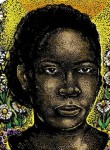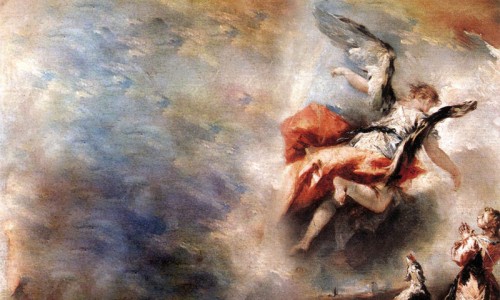
We invite you to read this article that helps us reflect on how to fight racism from the perspective of Ecumenical Spirituality. Enjoy your reading!
It’s important to start by emphasizing that the anti-racist fight is longstanding and still necessary. Here are some examples from History.

Maria Firmina dos Reis
Maria Firmina was a Brazilian writer, considered the first black novelist in Brazil. For a long time in History, her work and the things she did were overlooked. She wrote a book called Ursula to expose the evils of slavery in the 19th century and to emphasize the need to treat black people with dignity.
Rosa Parks became an icon in the fight for racial equality and against prejudice in the United States. She confronted racial segregation on American buses, which at that time required black people to give up their seats to whites. Her seemingly simple attitude symbolized the breaking of the cruelty of racism.

Rosa Parks
José do Patrocínio was a Brazilian pharmacist, journalist, writer, speaker, and political activist. He stood out as one of the most important figures in the abolitionist movement in the country. He created the Cidade do Rio newspaper in order to expose slavery and advocate for its abolition.
Luiz Gama was a Brazilian lawyer, abolitionist, speaker, journalist, and writer, as well as the Patron of the Abolition of Slavery in Brazil.
Pastor Martin Luther King, Jr.,, a prominent fighter for equality and in the civil rights movement in the United States, accomplished a lot in the combat against racial segregation. The famous march from Selma to Montgomery was forever marked in History due to the fight for the voting rights of the African-American community.
Valuing Human Beings
Educator Paiva Netto, President-Preacher of the Religion of God, of the Christ, and of the Holy Spirit, has been denouncing racism in his writings and preachings since the 1980s, categorizing it as obscenity and comparing it to the apartheid in South Africa, considering its specificities. He sheds light on social issues and presents Jesus, the Divine Liberator, as a Divine model for this debate, reflection, and actions to eradicate racism.
Therefore, this noble message from Paiva Netto opens our reflection and shows how the Divine Religion stands in terms of valuing human beings and their Eternal Spirits:
“The absence of a spirit of solidarity is undermining humanity. It is imperative to eradicate racism once and for all because, from its core, the most horrifying forms of persecution arise, hindering the establishment of Peace on the planet. Together, without discouragement, we must change this shameful scenario. We stand against racism because we primarily fight for the dignity of human beings.” [Emphasis added]
In this context, it is noteworthy that Christ always sends courageous missionaries to Earth from time to time to eradicate this social cancer called racism, as well as to awaken society in its various fields of activity (as seen in the examples above) to put an end to violence against human beings and the cultural legacy of slavery.
Is racism a problem of the past or does it still harm society today?
Racism is the expression of imperfection of human beings that need to be reeducated and to improve on Earth.
Since racism still exists, we must take a stand and take effective actions to change this sad reality. Do people witness racism? What do they do? Do they stay silent? Do they act or react? Do they feel uncomfortable? Do they cry? Are they indifferent?
Recognizing that racism exists shows that we need to improve ourselves and take effective, wise, and decisive measures to change this. Research also indicates that some people disagree with this perspective. Disagreement is a part of democratic debate, but our stance will never be one of omission.
The fight against racism is both individual and collective. “Individual” in terms of what each person can do to improve their own personal world and the universe they are a part of. And “collective,” as we need to create laws, projects, products, series, and so on that help people identify racism in society and actively fight against it.
What Is Racism?
“Racism is a system of structuring oppression within societies. By creating a hierarchy among racial groups, it establishes political, economic, social, and symbolic privileges for one group at the expense of others. It can also be defined as an ideological system of racial hegemony.”
Racism is present in the words and actions of individuals when they belittle, persecute, kill, harm the ethnicity, religion, culture, color, tradition, nationality, ultimately, when they discriminate against others based on their race.
Understanding how racism is rooted in society helps individuals tackle this issue and reflect and act in the face of such a complex situation.
Many people and organizations have engaged in anti-racist actions; besides words, we need action.
Some open schools to promote diversity, others create campaigns on buses to raise awareness. Some organize marches and denounce racism, while others compose songs and help people reflect on this topic. Some conduct research to scientifically understand the issue through data and profound, relevant questions.
The avenues of action are broad, and we won’t be able to mention them all, but in the anti-racist fight, there are many engaged individuals.
Educator Paiva Netto contributes to the discussion by helping us understand what racism is, its social, moral, and spiritual consequences, and by taking a stance on such relevant and current topic. In his article “Racism Is Obscenity,” he clarifies:
Racism is obscenity (just as social, gender, religious, scientific, or any other kind of prejudice). It undermines not only the efforts of the black community, but also those of poor whites, indigenous people, and immigrants . . . This is also social discrimination. The lack of Solidarity is jeopardizing humankind. Racism must be eradicated once and for all, since in its core lie the darkest types of persecution, hindering the establishment of Peace on the planet. Everyone together, we must courageously change such shameful scenario. We are against racism since, above all, we fight for the dignity of human beings.
To overcome racism, we need solidarity and to adopt an active, effective stance: Showing empathy with the pain of those who suffer and taking a stand to defend someone against racism, to punish the insensitive within the rules of legislation, to invest in reeducation, to discuss the topic from both a social and spiritual perspective, and to carry out actions at home, in schools, in churches, in the neighborhood, and in the community to address such a sensitive and relevant issue.
How to Combat Racism?
To achieve this, we need to ask ourselves: How can we be anti-racist in our daily lives? What is anti-racism? According to the online dictionary, it means “a belief or practice that recognizes pervasive racism in society, and actively combats racial prejudice and discrimination in order to promote racial justice and equality.”
In Jesus, We Find Lessons for Us to Become Anti-Racist
We will present below some Bible verses in which Jesus invites us to be bold in Goodness.
Jesus challenges the audacity of God’s apostles by stating: “the people of this world are more shrewd than the people of the Gospel” (the Gospel of Jesus according to Luke 16:8).
To fight racism, we need to be bold in Goodness, as taught by the Religion of God, of the Christ, and of the Holy Spirit. We cannot be timid, coward, or indifferent. Racism is still a seed cultivated in many hearts, so it needs to be eradicated, removed from society.
Jesus expects from us attitude and action in Goodness, even disarming our hearts so that we do not promote this or any other type of disrespect for our fellow human beings.
In Jesus’ Letter to the Church in Laodicea, He enlightens us with wisdom and warning:
15 I know your deeds, that you are neither cold nor hot. I wish you were either one or the other!
16 So, because you are lukewarm—neither hot nor cold—I am about to spit you out of my mouth. (Apocalypse of Jesus 3:15 and 16).
The lukewarm do not act to improve anything. Let us not be aligned with this! Being hot for Jesus means living by His lessons of Divine Love and Justice, not being apathetic in the face of such sad realities.
The Wise of the Millennia values those who act and work for God’s Peace, the victory against racism: “Blessed are the peacemakers, for they will be called children of God” (the Gospel of Jesus according to Matthew 5:9).
Peacemakers act, work, build, reeducate, persevere, and instill God’s Peace in hearts, removing racism from the hearts and fighting this social, moral, and spiritual evil.
+Jesus’ Letter to the Church in Laodicea
Some tips for being anti-racist:
a) Technology helps identify and combat racism.
b) Understanding the legislation on the subject and discussing it, as well as its application.
c) If one of the pillars of racism is considering oneself superior to others for various reasons, we need to deconstruct this with spiritual, historical, scientific knowledge, and anything that enriches this discussion. The potential of each creature is not in their skin color, but in the opportunities received and utilized by each person. Before God, we all have the same potential.
d) Reports on racism should never be dismissed as annoying. It is a very serious matter! What is wrong needs to be punished, corrected, so that it does not happen again. Omission or indifference does not contribute to the debate.
e) Jesus inspires us to be activists for Goodness. He teaches us not to belittle the value of others, to recognize their qualities, and learn from them. In the Parable of the Good Samaritan (the Gospel of Jesus according to Luke 10:25-37), a Samaritan is portrayed as a hero for his acts of compassion, respect, and hospitality. Samaritans and Jews had political, social, and religious differences. But Jesus teaches us to recognize and value the qualities of the Spirit in the various cultures in which individuals are born.

Parable of the Good Samaritan
f) We should include in our routine visits to museums, art spaces, free courses, films, music, TV series, documentaries, and various artistic expressions that help us understand the culture of others and learn to value and respect that culture.
g) Parents should talk to their children about this topic. Just as we discuss health care, the importance of a good education for job attainment, we should also engage our family in a dialogue about racism. If we feel insecure, it is advisable to seek the help of specialists who can clarify the subject.
h) This topic should be debated in schools so that the new generations can reflect on it, express their opinions, and carry out projects of hope and respect for human beings.

These are tips, not magic and unchangeable formulas. Anti-racist actions should consider the context of engagement, strategies for the target audience, appropriate language for different age groups, and the ability to connect with our Guardian Angels to inspire arguments and actions for the Good.
Therefore, let’s consider this reflection on how to fight racism in all situations and areas of our lives. There is always something we can do to improve and build a more just and egalitarian society for everyone.
Is it an easy and quick solution? It has never been! But we can join efforts, pay due attention, study the subject, seek knowledge, and implement effective practices.
We conclude this reflection with the words of educator Paiva Netto published in his book Tesouros da Alma [Treasures of the Soul], entitled “Fall of Ethnic Barriers”:
“The influence of Jesus’ redeeming message liberates us from the greatest of all captivities: ignorance about the Divine Laws that govern the Universe. An attentive and ecumenical reading of the Gospel and the Apocalypse, in Spirit and Truth, in the light of the New Commandment of the Heavenly Educator, enlightens our consciousness on this path. The mediocre view of presumed ethnic barriers falls to the ground. The color of the skin can never qualify the Eternal Spirit of human beings, created in the image and likeness of God, who is Love (Genesis 1:27 and First Epistle of John 4:8). Therefore, by loving with the Love of God, we will be spiritually qualified. Jesus said in His Gospel according to John 13:35: ‘Only by this shall all of you be recognized as my disciples, if you have the same Love for one another.’” [Emphasis added]
We thank Brother Paiva Netto, President-Preacher of the Religion of God, of the Christ, and of the Holy Spirit for such important reflections. Those who fight for the end of racism want to be recognized for living the Love of God.
BE AWARE that racism is a crime!



